Hi everyone! My apologies for being MIA the past two weeks – there has been a lot going on and I had to have a little break. But, in many ways, this kind of ties into today’s post. I was on Youtube the other day and stumbled on this video by the author Alexa Donne. She ponders over some of the strains of the expectations and crafted identity of the author brand, highlighting many of the things I have previously struggled over myself. So, how does this all fit into a discussion about author identity and education? For some authors, it may not. For me though, it’s a pretty important consideration.
The Education Argument
I don’t know when it started, but I imagine the education argument is a long-running discussion among writers seeking to build their author self. The question of whether it’s necessary for someone to have a degree in writing to be an author comes up on Twitter at least once a month. While I’m rather jaded and suspect some are asking for the engagement – it’s a sure-fire way to start a discussion – but I imagine that, for some writers, this is a genuine concern. This industry has so many fences to hop over, so it’s easy to wonder what gates are being guarded if you’re trying to get through.
So, do you need a degree to be an author? I always argue no. Writing is something that you can develop in your own time, through voracious reading, dedicated practice, and learning about your craft. If you want to be a writer, be a writer. Let me channel my inner Sister Act here. There will be blocks along the way whether you have a degree in writing or not. Becoming a best seller takes a lot of luck but, if your aim is just to do the thing you love, there’s always a way through.
But, do I think my education in writing has helped me? Lets discuss that.
My Author Identity and Education
When I was about 19, I was feeling a bit lost and ended up having several discussions with my sister and parents about moving to Wales. I think it was Dad who highlighted the fact there was a uni with a course on writing here? That then spiralled into applying a year later (despite my parents no longer intending to move) and I began my course. Creative and Professional Writing. It was only supposed to be an undergraduate degree to facilitate my ability to teach internationally. And yet, here I am. I’ll never know how much my path as a writer has been changed by that choice. Would I have a traditionally published book by this point? Would I have given up? But I do know some things for sure.
Firstly, my writing has changed. Personal style is, of course, always evolving and I might have gotten here anyway. It’s what I’m interested in writing that has changed most. I was always a fantasy writer before I came to university. And, before coming here, that’s probably the path I would have stayed on. Doing my degree (then masters and now PhD) has made me more experimental. Shifting Sands is a key example of this. I never would have thought about making an ebook that changes over time if not for the classes on hypertexts and other e-lit that pushes the boundaries. And, if I had somehow thought of it, there’s no way I’d have been brave enough to try it. Here I am though. I have an evolving ebook on Amazon that’s about to go through it’s first wave of change this month.
It’s a bit of a double-edged sword though. My author identity is so tied to my education, which brings both great satisfaction and a whole lot of stress. So, as with other posts, how about a helpful Pros and Cons list?
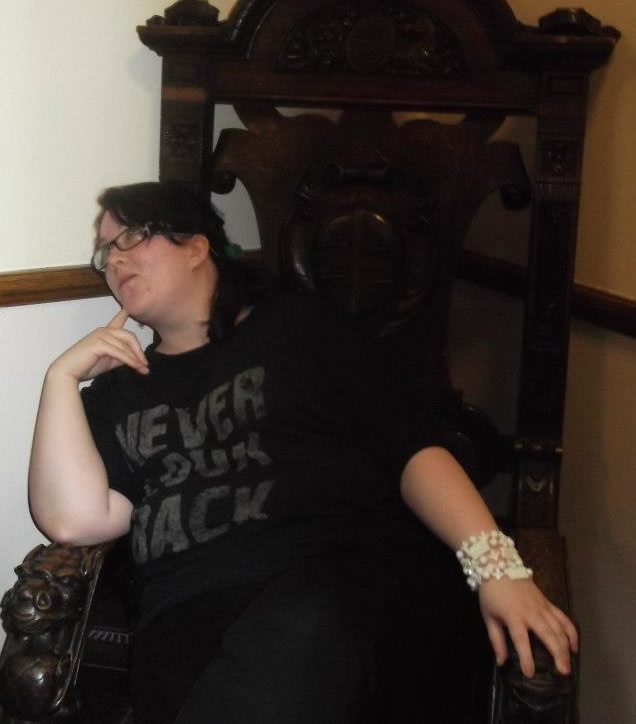
A Writing Education: Pros
Pushing Boundaries
Even in my more traditional prose, I do things I probably wouldn’t have done without having thought about the possibility. Before going to uni, I was just as stuck in my reading trends as I was in writing. There’s so much more out there though! It won’t be the same for every author, but I needed the help getting out of my comfort zone. Now I get excited when I hear about an author doing something cool – regardless of genre – and I like playing with new ideas.
I think, had I continued the path I was on, I would have always aimed for traditional publication. Now I’m less precious. Traditional publication would be nice – it still seems like a great achievement – but there are so many other ways to get your voice out there. You can self-publish books and ebooks across the internet, whether experimental or not. You can have a Wattpad or blog to write in. There are even exciting developments happening involving avenues like Patreon which I’d love to try. My eyes have been opened to other paths and it’s fun.
Support and Networking
Unless you’re particularly social, it can be hard being a writer on their way to authorship and trying to make connections. Twitter, while providing the opportunity to engage in hashtag games and pitching days, has a huge writing community all vying for attention. Facebook, meanwhile, creates a closed community and so limits engagement. Instagram is weirdly visual for an occupation so focused on words. And Youtube takes a lot of effort, with significant risks that it may not pay off. There’s a lot to do to meet people. Going to uni for writing gave me some ready-made connections and friends doing exciting things in the writing world.
I love watching where my uni friends are going as writers. I mean, I’m terrible at keeping in touch with some (I’m sorry!), but I keep track through social media and they seem to do the same for me. Every one of us seems to have taken a different path and it’s so exciting. I know that this has helped me widen my sphere of who to follow online. There are so many interesting writers that I’ve found through my uni friends! And I love that we cheer each other on. When it feels a little like you’re drowning in social media struggles, it’s great to see someone you know pop up to give you hope.
A Writing Education: Pros
Altered Expectations
If I hadn’t gone to uni to study writing, I’m about 99% sure that my writing life would be easier. I used to just be able to churn out content. And I was happy with it! Now, I expect a lot more of myself and this results in a lot of second guessing. Did I start this blog post three times in three different ways? Yes. Did Aamarin’s chapters in Shifting Sands force me to overhaul each of the four perspective character’s I’d already written? Yes. I sometimes worry that this has gone to far. Like, maybe I’ve lost some of the joy in writing. I’ve definitely found a different joy but maybe it is more difficult.
It has also changed who I want to be as a writer. The vision of me, typing away in an attic study, churning out novel after novel, doesn’t satisfy as much. Instead, teaching is what gets me excited. I love sharing my passion for writing and storytelling with students! Now that vision is of me in a tiny uni office, frantically typing away at a creative project between classes. I still dream of writing the next great fantasy, but there are also 100 other stories I plan to write.
Exhausted Juggling
Aaaand, here’s where we link back to the Alexa Donne video. As she discusses, being an author now needs an online presence at some point and this isn’t a simple “here’s my Twitter” thing. You need regular engagement on at least two or three platforms. A lot of them are high effort with low reward. But it’s an industry expectation and you can’t escape it. The author identity must play out online, it must be real, but it also must be carefully constructed to fit your brand. I’m not going to lie, it’s a bit exhausting. Unfortunately, for me, it’s also paired with the general struggles of PhD.
There are countless articles online and posts on social media about how exhausting academia can be. Like an author, a carefully crafted online self is basically an expectation at this point, but it’s different that the author identity. I’ve recently been doing content analysis of self-published and e-lit author tweets around the time of their latest publication and it has definitely been enlightening in this. As e-lit is, by nature, quite experimental, a lot of e-lit authors are academic and they use their Twitter accounts in a totally different way to my self-published author sample. There’s a lot more active networking and engagement with peers, but also a heavy academic edge to it. The work isn’t the important part – the research is. And, as someone who is both working on being an author and researcher, it’s difficult to juggle the expectations of both sides.
Who am I?
From what I see in my content analysis, I tweet like a self-published author but I’m aware that, under the surface, the academic side is always bubbling. I can’t escape it. Shifting Sands and this author self are inherently tied to my PhD. As Alexa Donne’s video mentions, it can be hard to know what side of you to show on your author platform and what parts of your identity will be relevant. For me, my education has to be part of it, for better or worse. I like talking about my research, it shapes how I act online, and it’s currently one of the biggest things in my life. Returning to the grand old question of whether an author needs a degree in writing though, it’s still a no from me, but it can certainly give you unexpected ways to shape both your writing and you as a writer.
So, over to you. What do you feel shapes your online identity? And are there other parts of yourself that remains hidden online?
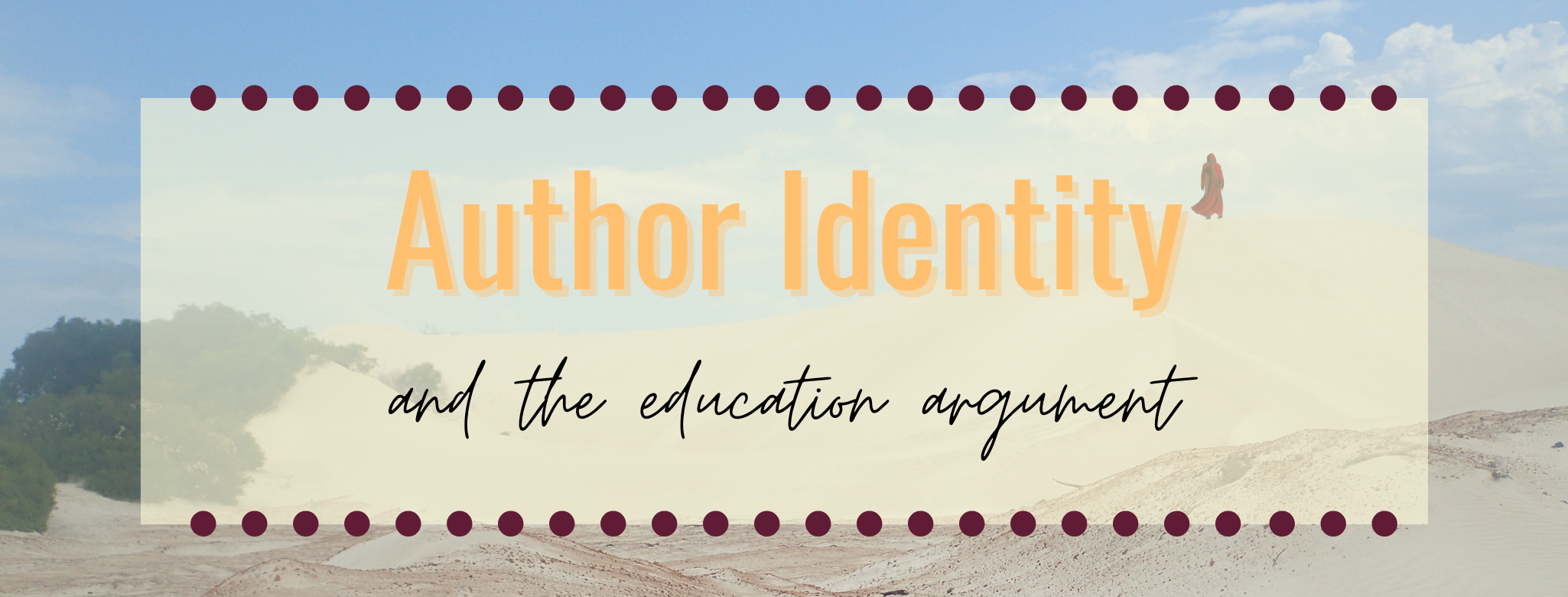
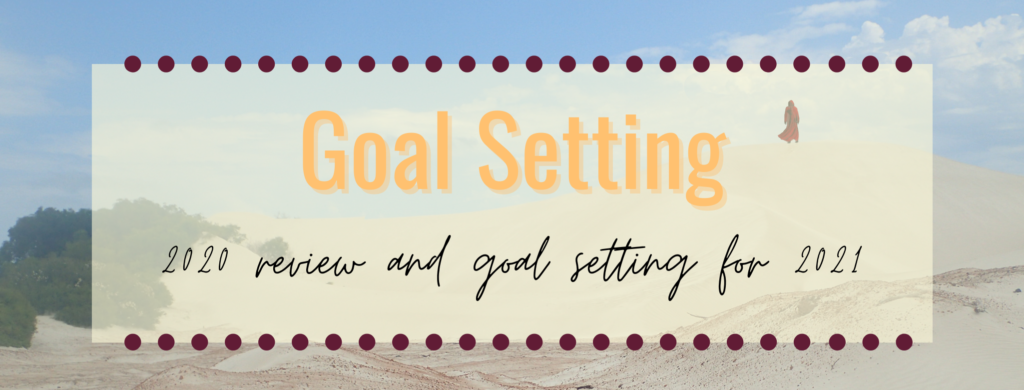
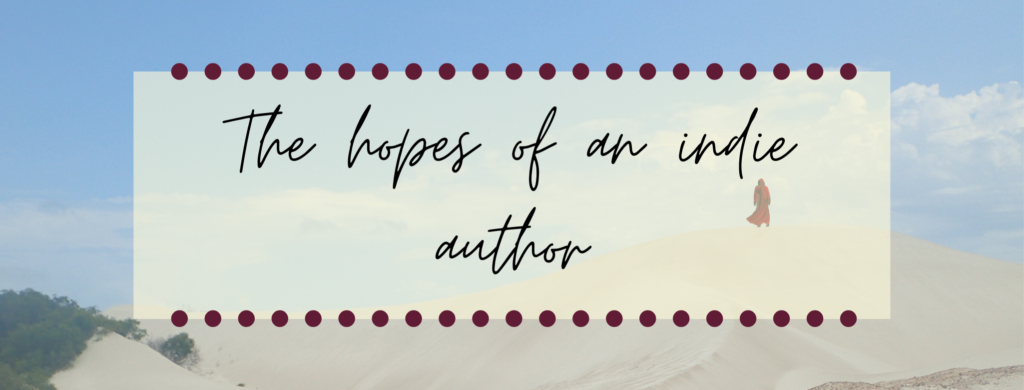
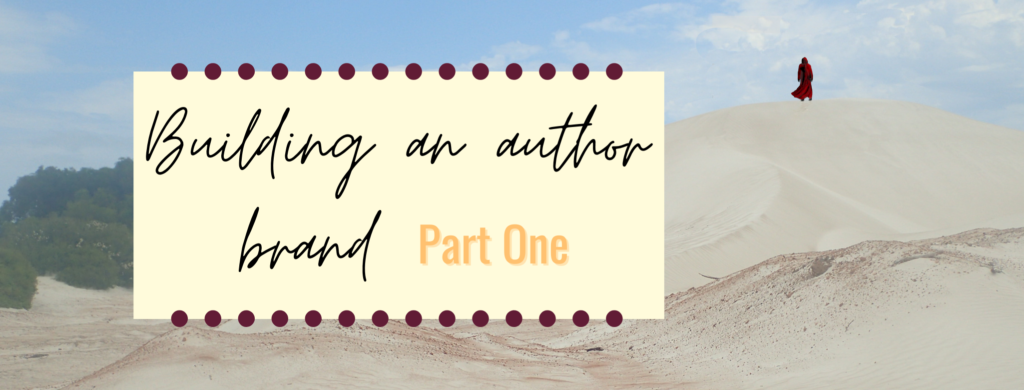
Comments
Comments are closed.